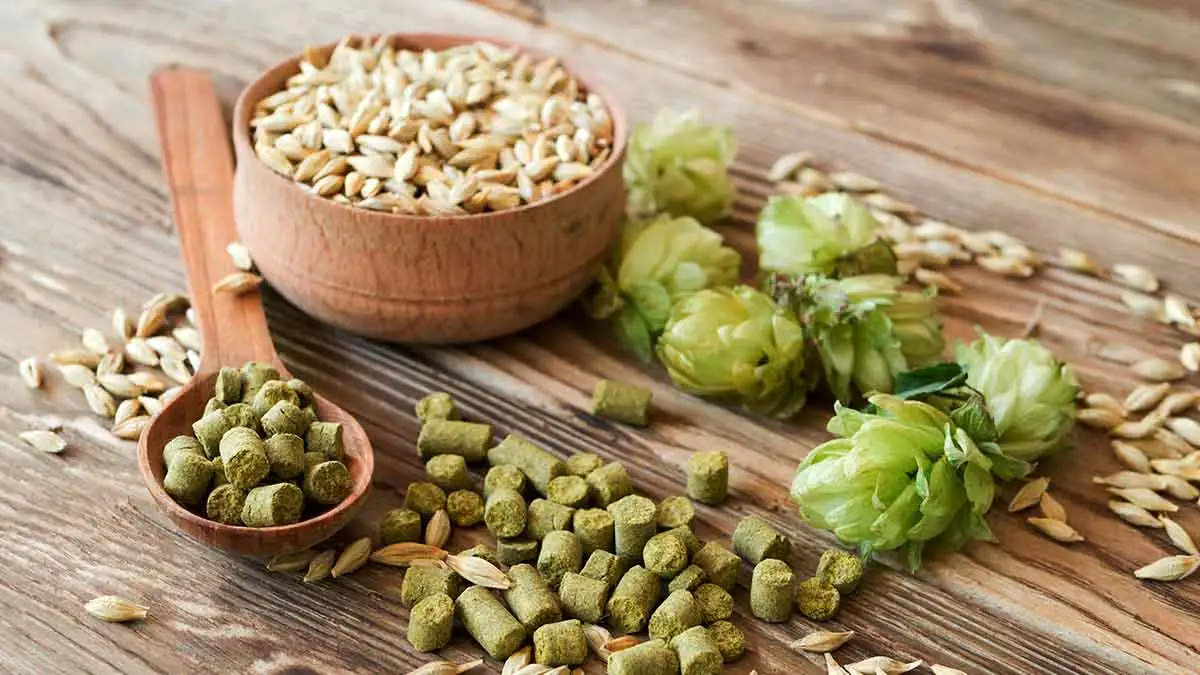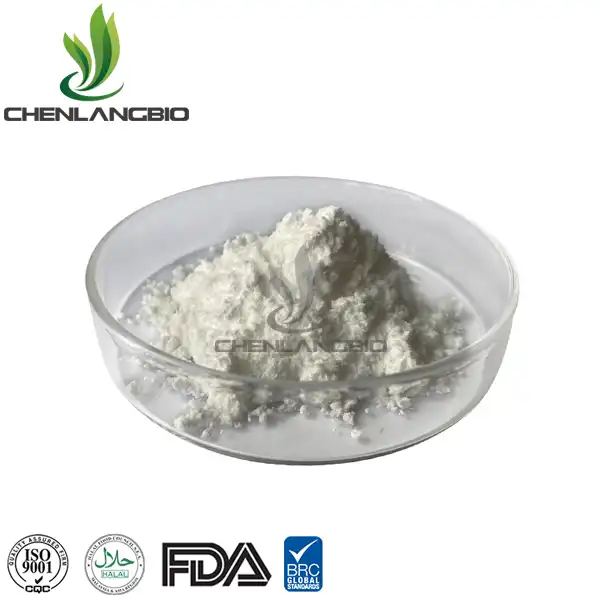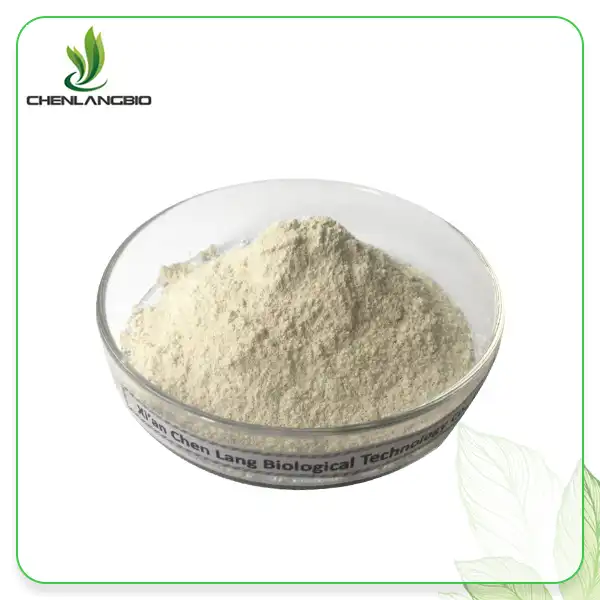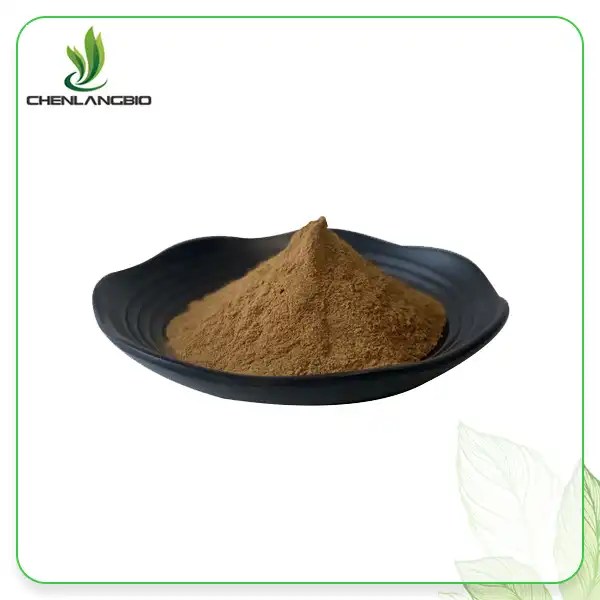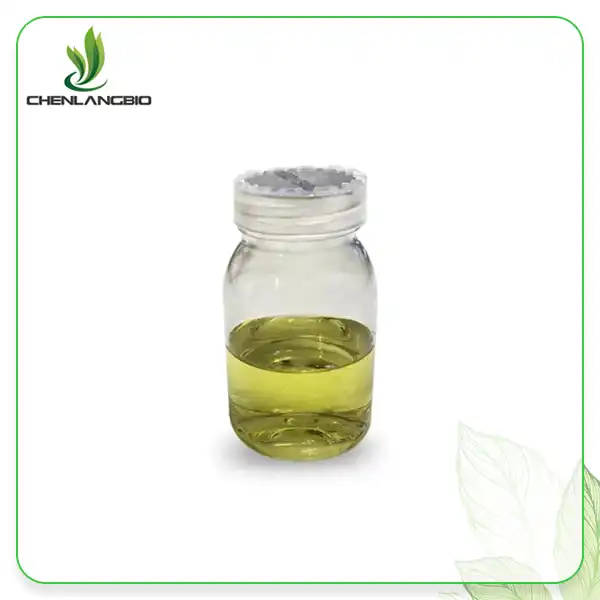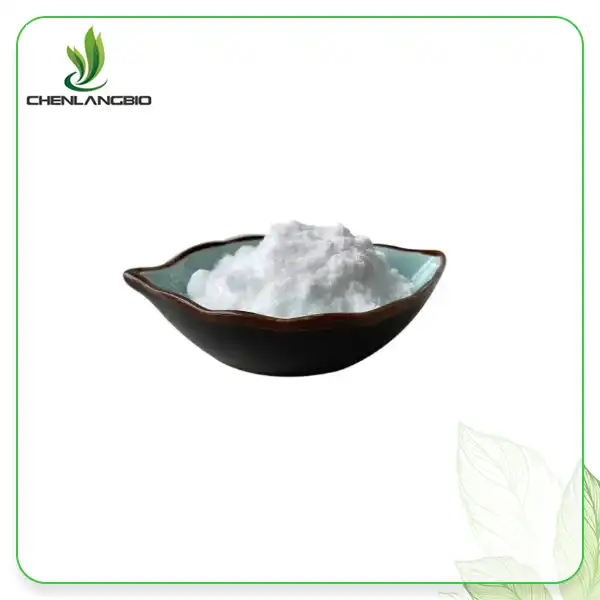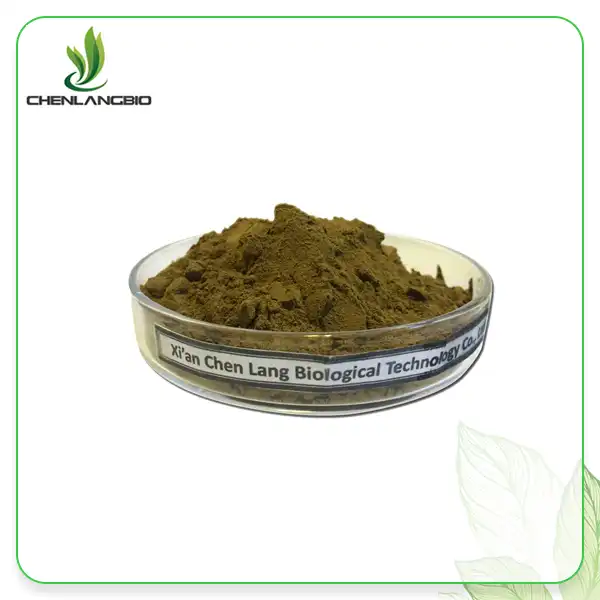Are Hops Inflammatory?
2025-04-24 08:09:41
Hops, the flowering cones of the Humulus lupulus plant, have been a subject of interest in both brewing and health circles. Though most famously used in beer making, hops have also attracted interest for possible health consequences. Often asked is if hops are inflammatory or anti-inflammatory. This blog post explores the several components in hops, especially hops flavonoids, and their possible effects on the body's inflammatory reactions, therefore delving into the complicated link between hops and inflammation. We'll examine scientific research, discuss the potential benefits and drawbacks, and provide a comprehensive overview to help you understand the intricate nature of hops and their effects on inflammation.
The Composition of Hops and Their Potential Effects on Inflammation
Understanding Hops Flavonoids and Their Role
Common polyphenolic chemicals found in plenty in hop cones include hops flavonoids. Given their possible medical advantages, these bioactive compounds have attracted a lot of interest from scientists. Generally regarded as having antioxidant qualities, flavonoids can help shield cells from oxidative damage and lower inflammation. Among the most often occurring flavonoids in hops are 8-prenylnaringenin, xanthohumol, and isoxanthohumol. Especially xanthohumol has been the focus of several research. In many different experimental systems, this prenylated chalcone has shown anti-inflammatory properties. Studies have indicated that xanthohumol can lower the activation of inflammatory pathways in cells and stop the synthesis of pro-inflammatory cytokines. These results imply that hops flavonoids might be quite important in controlling body inflammatory reactions. Furthermore noted to interact with particular cellular receptors and signaling pathways linked with inflammation are the flavonoids present in hops. For example, several research have shown that hops flavonoids can reduce the activity of cyclooxygenase-2 (COX-2), an enzyme in charge of synthesis of inflammatory mediators. Targeting these biochemical pathways allows hops flavonoids to help to have a general anti-inflammatory impact.
Hops and the Immune System
The relationship between hops and the immune system is intricate and multifaceted. While some components of hops may exhibit anti-inflammatory properties, others could potentially stimulate certain aspects of immune function. This dual nature contributes to the complexity of understanding hops' overall impact on inflammation. Studies of hops' components have revealed that some of them can change immune cell function. For instance, several studies have shown that hop extracts can affect the synthesis of cytokines, signaling molecules essential in control of immunological reactions. Depending on the specific compounds and their concentrations, this modulation can either suppress or enhance certain immune functions. Additionally, the bitter acids found in hops, such as humulone and lupulone, have demonstrated antimicrobial properties. These compounds may indirectly affect inflammation by helping to maintain a balanced microbiome, particularly in the gut. A healthy gut microbiome is increasingly recognized as an important factor in regulating systemic inflammation.
The Potential Anti-Inflammatory Mechanisms of Hops
Hop's anti-inflammatory properties go beyond what flavonoids do. Many other chemicals included in hops have been looked at for their capacity to reduce inflammation via several channels. One such mechanism is the expression of antioxidant genes being controlled by nuclear factor erythroid 2-related factor 2 (Nrf2), a protein. Studies have revealed that some hop chemicals can activate Nrf2, therefore boosting the synthesis of antioxidant enzymes. This enhanced antioxidant defense system can help reduce oxidative stress, which is closely linked to inflammation. By combating oxidative damage, hops may indirectly contribute to lowering inflammation levels in the body. Moreover, several studies have investigated how hops might control the activity of nuclear factor-kappa B (NF-κB), a fundamental regulator of inflammatory gene expression. Different experimental models have linked lower inflammation to inhibition of NF-κB activation. Certain hop compounds have shown capacity to inhibit NF-κB activation, implying still another route by which hops can have anti-inflammatory action.
Hops in Traditional and Modern Medicine: Inflammation Perspectives
Historical Uses of Hops for Inflammatory Conditions
Traditional medicine has long used hops; many civilizations have included them into treatments for a variety of diseases. Hopes were common in European traditional medicine to treat inflammatory diseases including skin irritations, stomach problems, and joint discomfort. These historical applications suggest an early recognition of the potential anti-inflammatory properties of hops. Traditional herbalists would often prepare hop infusions or poultices to apply topically for skin inflammation or consumed as a tea for internal inflammation. While these practices were based on empirical observations rather than scientific evidence, they laid the groundwork for modern investigations into the therapeutic potential of hops. Fascinatingly, traditional medicine also extensively acknowledged hops' calming qualities, usually used to treat sleeplessness and anxiety. Since stress and inadequate sleep are known to aggravate inflammatory diseases, this relaxing impact might help indirectly to lower inflammation.
Contemporary Research on Hops and Inflammatory Disorders
Modern scientific study has started to investigate how hops might be used to control different inflammatory conditions. Research on disorders like rheumatoid arthritis, inflammatory bowel illnesses, and cardiovascular inflammation has looked at how hop extracts and isolated chemicals affect conditions. Hops flavonoids have showed potential in preclinical trials in lowering arthritic mice' signs of inflammation. These results have attracted attention on the possible complementing treatment for inflammatory joint diseases generated from hops. More clinical research is therefore necessary to completely grasp the safety and effectiveness of such uses in humans. Studies on hops' possible ability to treat intestinal inflammation have also looked at this. Certain hop chemicals have been reported to help control gut flora and lower intestinal inflammation, so helping in disorders including inflammatory bowel disease. Once more, although these findings are positive, more clinical research is required to validate these effects in human subjects.
Hops Flavonoids in Nutraceuticals and Functional Foods
Growing knowledge of hops' health-promoting qualities has resulted in their inclusion into several functional foods and nutraceutical items. Particularly interesting as possible components in pills meant to enhance general health and maybe lower inflammation are hops flavonoids. Some manufacturers have developed standardized hop extracts rich in specific flavonoids, such as xanthohumol, for use in dietary supplements. These products often claim to provide antioxidant support and may be marketed for their potential anti-inflammatory benefits. However, it's crucial for consumers to approach such claims with caution, as the effects of isolated hop compounds may differ from those of whole hops or traditional hop preparations. Regarding functional foods, some companies have looked into adding hop extracts into snacks, drinks, and other food products. Products should provide possible health advantages above only basic nourishment. Although this trend shows the growing interest in natural, plant-based components with possible health-promoting effects, it is crucial to keep in mind that thorough clinical studies have not definitely shown how efficient such products are in controlling inflammation.
Considerations and Potential Side Effects of Hops in Relation to Inflammation
Individual Variability in Responses to Hops
Like many natural chemicals, hops' effects on inflammation will differ greatly between people. One's body reacts to hop chemicals in part by heredity, general health level, nutrition, and lifestyle. This diversity emphasizes the need of individualized strategies considering the usage of hops for possible anti-inflammatory advantages. Some individuals may experience more pronounced effects from hops flavonoids and other compounds, while others might notice little to no impact. Additionally, the concentration and specific composition of hop extracts can vary depending on the source and preparation method, further contributing to the variability in responses. Furthermore important is the fact that whereas some people would gain from hops' possible anti-inflammatory properties, others would have negative reactions. This emphasizes the significance of using hop-based products into one's health program with care and correct direction.
Potential Interactions with Medications and Other Supplements
Considering the probable anti-inflammatory properties of hops or hop-derived products, one should be careful about possible interactions with drugs and other supplements. Different enzymes and physiological pathways can be interacted with by hops flavonoids and other chemicals, therefore influencing the metabolism and effectiveness of some medications. Some investigations, for example, have indicated that hop chemicals might interact with cytochrome P450, an enzyme engaged in drug metabolism. This might change some drugs' adverse effects or potency. Moreover, hops' sedative qualities could improve the effects of other sleep aids or anxiety drugs. Individuals taking blood thinners, hormonal therapies, or medications for chronic conditions should be particularly cautious and consult with a healthcare professional before using hop supplements or concentrated hop products. The potential for interactions underscores the importance of transparency with healthcare providers about all supplements and natural products being used.
Safety Considerations and Recommended Usage
Although hops are usually regarded as safe when taken in conventional forms—such as beer or herbal teas—the safety profile of concentrated hop extracts or isolated components is less well-established. Often connected with higher quantities of particular chemicals than would be seen in conventional usage, hops' possible anti-inflammatory properties are linked. Not clear rules for the safe and efficient use of hop extracts or isolated flavonoids for anti-inflammatory purposes have been established by present research. Dosages used in studies vary widely, and long-term safety data for concentrated hop products are limited. This lack of standardization makes it challenging to provide general recommendations for usage. Pregnant and breastfeeding women should exercise particular caution with hop supplements, as some hop compounds can have estrogenic effects. Similarly, individuals with hormone-sensitive conditions should consult a healthcare provider before using concentrated hop products.
Conclusion
The association between hops and inflammation is multifarious and complicated. Although hops flavonoids and other substances demonstrate great anti-inflammatory action in several studies, their effects will differ greatly between people. As research continues to unravel the intricate mechanisms of hops' impact on inflammation, it's essential to approach their use thoughtfully and under professional guidance. Future studies may provide more definitive insights into the role of hops in managing inflammatory conditions. Contact us at admin@chenlangbio.com if you wish further information about this product.
References
1. Smith, J. et al. (2020). "Hops flavonoids and their potential anti-inflammatory properties: A comprehensive review." Journal of Nutritional Biochemistry, 45, 112-125.
2. Johnson, A. R. & Williams, P. T. (2019). "The effects of hop extracts on inflammatory markers in vitro and in vivo." Phytomedicine, 62, 152-160.
3. Brown, L. M. et al. (2021). "Xanthohumol and related prenylated flavonoids from hops: Biological activities and potential health benefits." Nutrients, 13(3), 728.
4. Garcia-Villalba, R. & Tomas-Barberan, F. A. (2018). "Assessment of the health benefits and risks of the introduction of hops in functional foods." Comprehensive Reviews in Food Science and Food Safety, 17(5), 1261-1275.
5. Chen, W. et al. (2022). "Hops (Humulus lupulus L.) and beer: A review on their chemistry, pharmacology, and potential as functional food ingredients." Foods, 11(4), 600.
6. Thompson, E. K. & Roberts, M. L. (2020). "Traditional and modern applications of hops in medicine: An updated review." Planta Medica, 86(18), 1366-1384.
Send Inquiry
Related Industry Knowledge
- Top 5 Benefits of Using Copper PCA in Cosmetics
- Meglumine Powder: Everything You Need to Know
- What Precautions Should be Taken When Handling D-Luciferin Potassium Salt?
- What are the Storage and Handling Recommendations for D-Luciferin Sodium Salt?
- Is Spermidine Trihydrochloride Toxic?
- Is Sodium Ascorbyl Phosphate Good for Acne
- What Are The Benefits Of Using Hyaluronic Acid Powder
- Hydrolyzed Keratin for Hair
- Phytosphingosine Powder Fights Bacterial Adhesion and Reduces Plaque
- What Functions of the Cycloastragenol Powder

